Jeff Bezos: the Man with All the Money in the World
December 3, 2020
What would you do with a thousand dollars? How about a million? Or, what would you do with 74 billion dollars? This is how much Jeff Bezos, the CEO of Amazon, has made in 2020 alone.
To put this massive amount of money in perspective, 74 million dollars could buy 8 Veneno Roadsters, the most expensive Lamborghini sports car. 74 billion dollars, however, could buy 8915 of this same car.
Jeff Bezos is an American internet entrepreneur, best known for his successes as the CEO, founder, and president of the multi-national company called Amazon, as well as his title as the richest man in the world.
With his current net worth sitting at 204.6 billion dollars, it is known that Jeff Bezos uses his astonishing profits to fund his 65 million dollar Gulfstream jet as well as his mansions across the world.
But what else could he be doing with his fortune to benefit humanity as a whole?
With all his prosperity, Bezos could be giving health benefits to all his Whole Foods Market employees, clean the Pacific Garbage Patch, or end the war in Yemen, while still maintaining his title as the richest man in the world.
Up until their purchase by Amazon in 2017, Whole Foods Market prided itself in their employee benefits. However, Amazon has made the decision to cut employee benefits for anyone working less than 30 hours a week, contradicting their promises made upon the purchase.
It is estimated that the cost for healthcare benefits for the 1,900 part time employees would cost 19 million dollars a year. 19 million dollars seems like quite the amount until you compare it to Bezos’ profit of 321 million dollars a day in 2020 or 4.4 million dollars an hour in 2018.
The DecisionData team stated that in 2018, “in about 4.5 hours of work, Bezos could cover the entire cost of these part time employee benefits every year” (DecisionData team 1).
This expense becomes easier to manage by Bezos every year. According to Market Realist, Bezos makes a profit of 13.4 million dollars an hour.
Jeff Bezos has decided to cut health benefits for 1,900 of his own employees, an expense that could be paid in under two hours.
Bezos could additionally use his wealth to fund the clean-up of the Great Pacficic Garbage Patch.
The Great Pacific Garbage Patch (GPGP) is a collection of litter in the Pacific Ocean, twice the size of the state of Texas.
This garbage patch is a huge threat to marine life and habitats. Although not the majority, some of the garbage is from dropped packages from shipping companies such as – you guessed it – Amazon.
According to the U.S. National Oceanic and Atmospheric Administration, it would cost anywhere from $122 million to $489 million just to fund a boating crew for the cleanup. A price that would cost Bezos less than two days of work in 2020.
Additionally, Ocean Cleanup has designed a plan to extract about 42% of the debri, costing about $390 million, a price that would again cost Bezos less than two days of work.
Not only could Bezos pay for the clean up of the GPGP, but he could also fund efforts to prevent additional trash and debri entering our oceans.
Bezos’ riches could not only assist in the solving of local and national issues in America, but he could also fund solutions worldwide.
The country of Yemen has been in a civil war for 6 years, leading to immense violence and the starvation of 20 million citizens; 2 million of them being children.
The United Nations has called for the collection of 4 billion dollars from countries around the world to end the worst humanitarian crisis in history.
Bezos can afford this cost in less than two weeks of work.
Jeff Bezos can afford to feed 20 million starving people, not only today, but for years.
While Bezos could easily afford the solutions for these worldwide problems, the question of whether or not he should be held morally responsible still stands.
Yasmin Wassmer, a senior at Quakertown Community High School says, “I feel like our goal as humans is to form a functioning society, and to do that we must help one another if we have the resources to do so. No single person needs so much money.”
However, others disagree. “It’s his money, he can do what he wants with it,” says Kadin Bayne, another Quakertown senior.
The debate of whether or not the rich should be held accountable for using their wealth to benefit others is based on personal morals and ethics.
So I ask you:
What would you do if you had all the money in the world?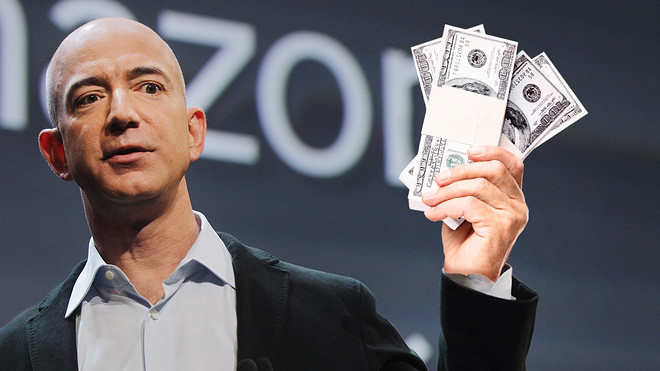



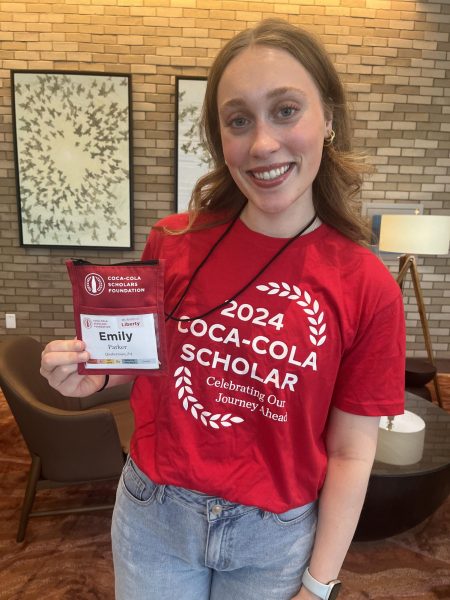




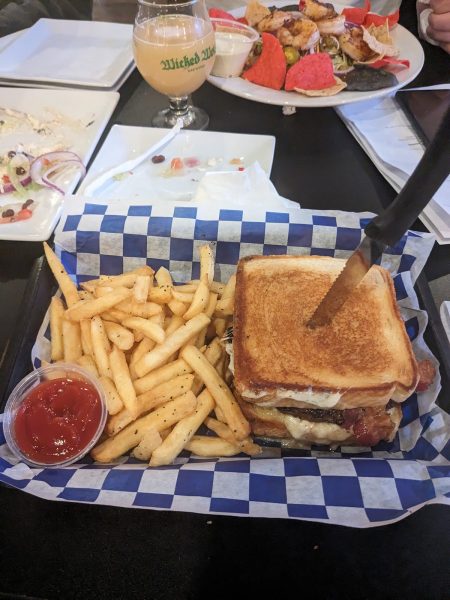

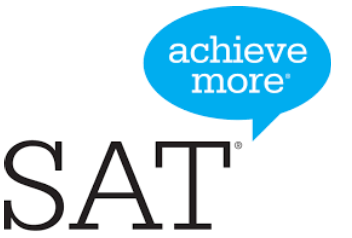
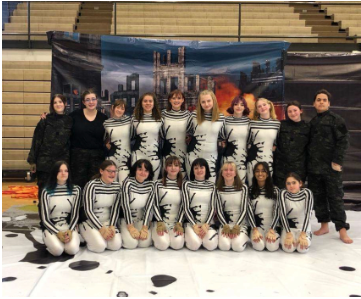
stzgists • Sep 29, 2021 at 6:27 am
Jeff Bezons has gone to space. so you are telling me now that not only astronaut go to space anymore billionaire are now going yo space. this i very serious so only the very rich and the astronauts now goes to space some thing much happen. anyway what do they tinging they are gong to space to do.